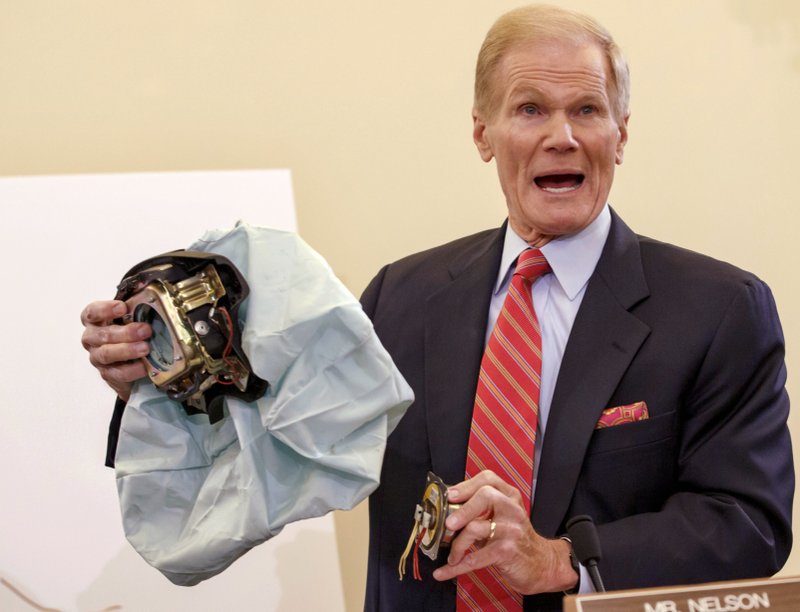DETROIT -- General Motors on Thursday announced its largest recall of Takata air-bag inflators yet, but the nation's biggest automaker says the parts are unique to its trucks and SUVs and don't pose a safety risk.
The government's highway safety agency disagrees.
The National Highway Traffic Safety Administration said GM must proceed with two recalls adding up to 1.9 million trucks from the 2007 through 2011 model years.
The recalls were unveiled along with those from six other automakers totaling 4.4 million vehicles. They are part of the first round of a huge Takata recall expansion announced in May. A total of 17 automakers are adding 35 million to 40 million inflators to what already was the largest auto recall in U.S. history.
Takata inflators -- when exposed to humidity and repeated hot-and-cold cycles -- can malfunction when activated and spew shrapnel into drivers and passengers.
GM said that it would begin the recall process in cooperation with the National Highway Traffic Safety Administration even though it doesn't believe inflators in its trucks are unsafe.
The company said that no inflators in its trucks have ruptured during an estimated 44,000 crashes, or in testing of returned inflators. It also said the inflators were uniquely made for GM trucks and SUVs with greater venting and machined steel end caps.
"We don't have any evidence at this point that these inflators aren't working as designed," spokesman Tom Wilkinson said. He wouldn't say if GM is trying to avoid recalls.
But National Highway Traffic Safety Administration spokesman Bryan Thomas said GM has filed paperwork declaring the inflators defective and they will be recalled. "The science clearly shows that these inflators become unsafe over time," he said.
The GM resistance, although good-mannered, is surprising given the fact that the company was fined and is still being monitored by the National Highway Traffic Safety Administration for covering up faulty small-car ignition switches two years ago.
Documents detailing the latest round of recalls were posted Thursday by the safety agency. They include recalls from BMW, Daimler Vans, Ford, Jaguar-Land Roger, Mercedes-Benz and Volkswagen. Recalls from eight other companies were posted last Friday.
The documents cover passenger air bags mainly in older models in states with high temperatures or humidity.
Recalls related to Takata in this round now total 16.4 million vehicles. The recalls are being phased in over the next three years.
Takata uses ammonium nitrate to create a small explosion that inflates air bags in a crash. But the chemical can deteriorate over time when exposed to high heat and humidity and can blow apart a metal canister, spewing shrapnel. The inflators are responsible for at least 11 deaths and more than 100 injuries worldwide.
Takata agreed to the expansion May 4, and more recalls will be announced later. The recalls are being phased in because of a lack of available replacement parts. Models from 2011 or older in high heat and humidity areas will get first priority, followed by 2008 and older models in Southern-tier states, then 2004 and older models in the rest of the country. Research has shown that it takes at least six years for the ammonium nitrate to deteriorate.
On Wednesday, a U.S. Senate report found that Fiat Chrysler, Mitsubishi, Toyota and Volkswagen are selling new vehicles with Takata air bag inflators even though the devices are likely to be recalled within a few years.
Since the recalled models vary by state and age, officials say that the best way for an owner to see if his car is affected is to go to https://vinrcl.safercar.gov/vin/ and key in the vehicle identification number. It may take several weeks for all the newly recalled vehicles to be entered into the database.
Business on 06/03/2016
